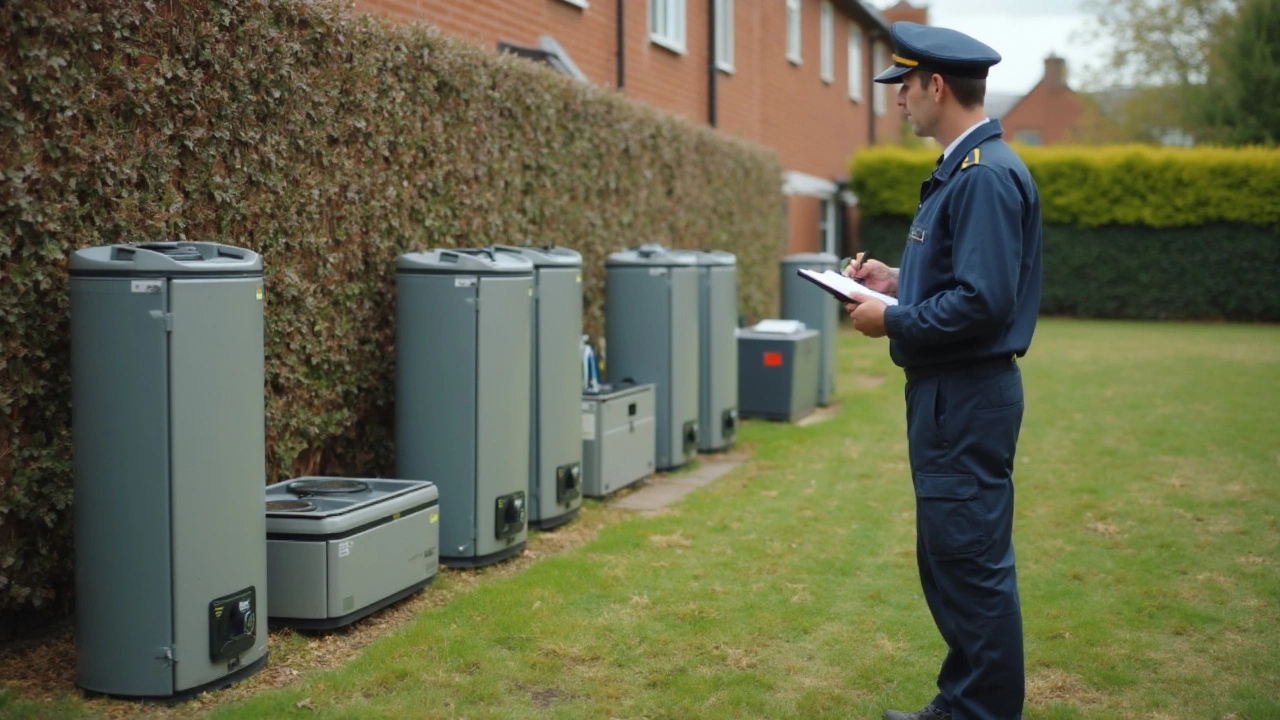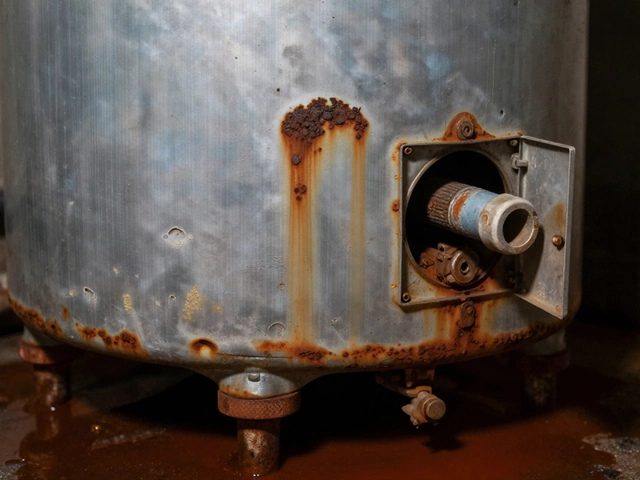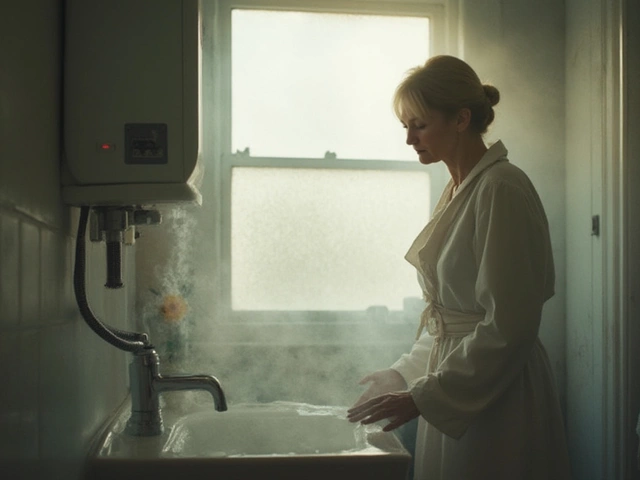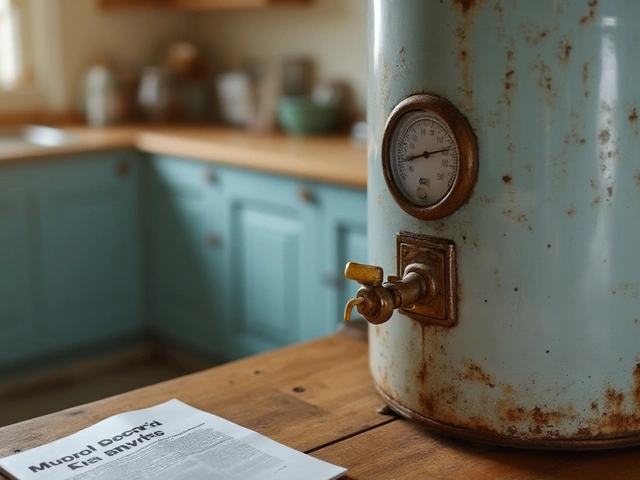Considering a hot water heater repair? You might be stuck wondering if it's worth the hassle—or if replacing the whole thing altogether is the better bet. It's a common dilemma that almost every homeowner faces at some point. But don't sweat it! Let's break down a few things that'll make your decision a whole lot easier.
First off, how old is your hot water heater? If it's creeping past that decade mark, it might be time to say goodbye and invest in a new one. Appliances have a lifespan, and let's be honest, nothing lasts forever. But if it's relatively young and robust, maybe a repair can keep it humming along smoothly for a few more years.
Money is naturally a big factor here. Repairs can range from a quick and cheap fix to a more hefty bill that starts to look awfully close to the cost of a brand new unit. A good rule of thumb? If that repair bill starts getting past half the price of a new water heater, it might be time to do some shopping.
- When Is Repairing Worth It?
- Age and Condition of Your Heater
- Cost of Repairs vs. Replacement
- Energy Efficiency Matters
- Common Repair Scenarios
- Practical Tips for Homeowners
When Is Repairing Worth It?
Deciding when to repair a hot water heater can be a bit like asking yourself whether to fix your car or go all out with a new one. There are some key things to think about that'll make this decision easier.
How Old Is Too Old?
If your hot water heater is less than 8-10 years old, repairing it is often the smarter choice. Modern units are built to last around 12-15 years, so if it's younger than that, it could definitely have some good years left with a bit of maintenance.
Signs It Needs Attention
Look out for specific symptoms like lukewarm water, rusty water, or strange noises. These issues often have straightforward fixes and don't necessarily mean it's time to kick the unit to the curb.
Weighing Repair Costs vs. New Purchase
As a benchmark, if the repair costs come to more than 50% of what a new heater would cost you, replacement might be more economical. Some basic repairs, like a faulty thermostat or heating element, are generally cheaper than total replacement.
| Repair Type | Average Cost |
|---|---|
| Thermostat Replacement | $150-$200 |
| Heating Element Replacement | $200-$300 |
| Anode Rod Replacement | $20-$50 |
Energy Efficiency Considerations
Older models tend to be less efficient. If you're noticing a significant jump in your energy bills, that's a clue your heater isn't working efficiently. Sometimes, simply replacing a part can improve efficiency and save you money in the long run.
In summary, if your water heater repair costs are manageable and the unit is still relatively modern with fixable issues, opting for repair can be your best bet. Weigh the long-term benefits against the immediate costs, and you'll be well on your way to making the right decision for your household.
Age and Condition of Your Heater
Alright, let’s dig into one of the biggies when it comes to deciding on water heater repair: the age and condition of your machine. This might sound obvious, but it's key! The average lifespan of a hot water heater is around 8 to 12 years. If you know your heater is hitting or surpassing the 12-year mark, it might be ripe for retirement.
Check for Wear and Tear
Have a good look at your water heater. Do you see rust or corrosion on the outside? That's not a great sign and usually indicates potential future leaks or other issues. Sure, sometimes a little rust is just cosmetic, but more often it's a heads-up that the tank's been around a while.
Performance Issues
Is your water not as hot as it used to be? Or maybe it's taking longer to heat? These signs could mean that your heater's elements are wearing out. Even if you're not ready to replace the entire unit, addressing these elements can multiply the life of your existing system.
If you've noticed sudden clunking or rumbling sounds, that's not your heater trying to sing—it could mean sediment buildup. This can often be treated, but it’s also an indicator that your heater is working harder than it needs to.
Maintenance: The Overlooked Savior
Regular water heater maintenance can stretch out that lifespan. Flushing your tank annually can keep sediment from setting up camp, and it helps your heater run much more efficiently.
Considering the Stats
| Age in Years | Repair or Replace |
|---|---|
| 0-5 | Repair |
| 6-10 | Repair if minor; consider efficiency improvements |
| 11-15+ | Consider replacement |
Remember, a seasoned heater usually costs more to run due to reduced efficiency. Keep an eye on your energy bills because they're a good indicator that your water heater may not be chugging along as effectively as it used to. Weigh this cost against what a new, much more efficient heater would save you annually. It's a balancing act, sure, but knowing when to repair or replace can save you a headache down the road.
Cost of Repairs vs. Replacement
When you're faced with a broken hot water heater, the big question often is: should you repair it, or is it time to spring for a new one? It's all about weighing those costs, because who wants to spend more than they really have to?
Here's the lowdown: the average repair for a water heater can set you back anywhere from $150 to $700, depending on the problem. Some common issues like a busted thermostat or heating element might only cost a couple hundred bucks. But when you're dealing with a more serious failure, those numbers tend to climb quickly.
Weighing the Costs
It's crucial to think about how much you're pouring into repairs over time. If each fix is a band-aid, constantly dealing with a water heater maintenance headache could mean it's time to think bigger. Most experts agree that if your repair bills hit over half the cost of a new hot water heater, replacement is probably the smarter move.
Replacement Costs Breakdown
In case you're curious, a brand-new water heater usually costs between $1,000 and $3,000, including installation. The price varies based on the type and energy efficiency. Although coughing up that kind of dough upfront might sting, remember that newer models are savvy savers when it comes to energy bills.
| Repair Cost | Replacement Cost |
|---|---|
| $150 - $700 (per repair) | $1,000 - $3,000 (installed) |
Also, a fresh unit means fewer repair headaches in the near future. Why? Because new models come with warranties that often cover parts and labor for a few years, providing you with extra peace of mind. So while it's an investment, it often pays off in savings and fewer unexpected surprises.
Always think about your specific situation and finances, but when in doubt, remember that old saying: an ounce of prevention is worth a pound of cure.

Energy Efficiency Matters
When it comes to your hot water heater, energy efficiency isn't just a fancy buzzword—it's a way to save serious cash on your bills. Your heater can account for nearly 20% of your home’s energy use. Crazy, right? So, getting a handle on efficiency can lighten the financial load.
Newer models are much better at using energy smartly than older ones. If your heater is of the ancient variety, it’s probably hogging energy like a kid with Halloween candy. Replacing it with a more efficient model might cost more upfront, but over time the savings can add up big time.
Understanding Efficiency Ratings
Check out the ENERGY STAR rating—it's your best friend in this energy showdown. Units with this label meet strict guidelines set by the EPA and can immediately start saving you money. Look for higher Energy Factor (EF) ratings, too. Higher EF means better efficiency.
Standby Heat Loss
Older tanks likely suffer from standby heat loss, which is just a fancy way to describe how heat just kind of disappears from the tank. Insulating your tank can help a bit, but newer models are designed to combat this wastage.
Cost Savings Table
| Heater Type | Annual Operating Cost |
|---|---|
| Standard Electric | $500–$600 |
| High-Efficiency Electric | $200–$300 |
Switching to a high-efficiency model might seem daunting at first, but when you add up the numbers, it often makes a lot of sense. Less energy waste means less money leaving your wallet—pretty simple math.
Common Repair Scenarios
Divin' into the nitty-gritty, there are a few water heater repair issues that folks bump into more often than others. Knowing what you're dealing with can save you both time and headaches. Let's talk about some of these usual suspects.
1. The Dreaded Cold Shower
If you’ve been rudely interrupted by an icy blast during your morning shower, your hot water heater might be on the fritz. A common cause is a faulty thermostat. If your water heater’s thermostat gives up, you won’t be getting that nice warm water anytime soon. Fortunately, thermostats are generally easy and affordable to replace.
2. Odd Noises
Ever heard your water heater making odd banging or popping sounds? This can happen as sediment builds up at the bottom of the tank. Over time, mineral deposits can pile up, causing all sorts of racket. Draining or flushing the tank annually can often clear out these deposits, prolonging your heater’s life.
3. Leaky Situations
Leaking can be a real pain and might be as simple as some loose connections. Tightening them could stop the drip. However, if rust or corrosion is causing the leak, you might need more serious fixes, or even a new tank if the damage is severe.
4. Pilot Light Problems
For those with gas water heaters, the pilot light not staying lit can be a frequent issue. This might be due to a faulty thermocouple or gas valve. Cleaning the thermocouple along with checking for drafts nearby can sometimes do the trick.
Quick Glance: Common Issues & Their Fixes
| Problem | Possible Fix |
|---|---|
| No Hot Water | Check thermostat, replace if needed |
| Loud Noises | Flush sediment, drain tank |
| Leaks | Tighten connections, check for rust |
| Pilot Won't Stay Lit | Inspect thermocouple, clean if needed |
These regular fixes can make a huge difference with your water heater’s longevity and performance. But remember, safety first! If you ever feel uncomfortable fiddling with it yourself, it’s always a good idea to call in a pro.
Practical Tips for Homeowners
So you're dealing with a hot water heater that's acting out of line. Before you dive into a repair or decide to replace it, here are some straightforward tips to make the whole affair a bit smoother. These might save you some time and cash in the long run.
Regular Maintenance Pays Off
Much like how your car needs regular oil changes, your water heater needs a bit of TLC too. Flushing the tank annually can help remove sediment build-up, which is a sneaky culprit for efficiency drop. It’s pretty simple: just attach a hose to the drain valve and let it flow. Be sure to let it cool first to avoid any unpleasant hot water injuries!
Mind the Temperature
If you’re looking to save on energy bills, consider setting your heater to 120°F. For every 10 degrees you lower the thermostat, you save about 3-5% on your water heating costs. This little trick also reduces the risk of scalding and prolongs the life of your heater.
Listen and Look
Keep an ear and an eye out for any unusual noises or leaks around your heater. A rumbling noise could mean sediment build-up. Notice a puddle? That’s definitely not normal. Catching these signs early can help you avoid bigger issues. If in doubt, it's worth having a professional take a glance.
Know When to Call a Pro
- If you notice any gas smells, burnt parts, or if the pilot light seems to have a mind of its own, it’s time to call the pros. These are signs that you shouldn't mess with, and getting a professional’s touch is always the safest bet.
- Another key point: regularly check the pressure relief valve. It’s a small part but important for safety, as it's designed to release any extra pressure if things get too hot.
Energy Efficiency Checks
A quick check on your heater’s efficiency can give you peace of mind. Look for an Energy Star label when you're contemplating a replacement. Those models can be 20% more efficient than standard models, adding up to significant savings over time.
Follow these simple tips, and you might keep your water heater running smoothly for longer, keeping your house warm and your wallet cool.




